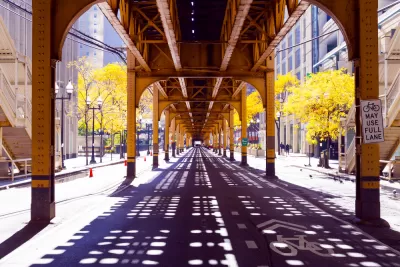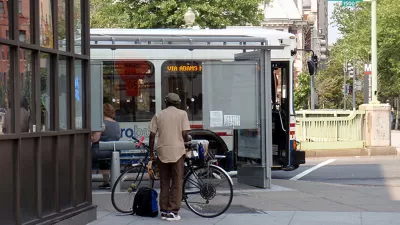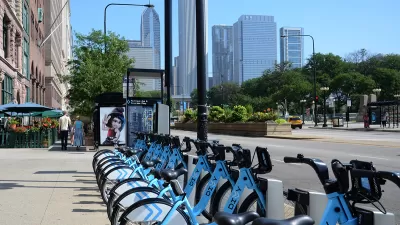A year after a report showed a giant discrepancy in enforcement of bike regulation between white and black riders, data the Chicago Police Department continues to target black bikers.

A year ago, Mary Wisniewski, reporting in the Chicago Tribune, exposed big inequities in how black and white cyclists are treated. "She found that in 2017 roughly 56 percent of the bike citations were written in majority-African-American neighborhoods, with only about 24 percent written in Latino communities, and a mere 18 percent issued in majority-white neighborhoods," John Greenfield writes for Streetsblog.
A year later the numbers show the CPD hasn't done anything to curb this inequity. "Oboi Reed, the former head of the bike equity group, Slow Roll Chicago, who currently leads the mobility justice organization Equiticity, is briefly quoted in the Tribune piece, stating that he believes the bike ticketing provides an excuse for stop-and-frisk policing." Reed sees the ticketing practice persisting, because that's how some in the CPD want it to be. "Solving the problem of unfair bike ticketing practices seems like a relatively simple matter – commanders should be able to order their officers to ease up on ticketing in parts of town that are currently getting a disproportionate number of tickets," Greenfield writes.
The city continues to face complaints about bias in its policing, facing protests after the shooting of Laquan McDonald and against a $95 million dollar Police Training Center. With threatened school closures and other looming financial issues, city services are coming under increasing scrutiny, particularly those related to the police. Unequal enforcement means unequal justice. In an environment where the Chicago Police Department has limited resources, the unequal enforcement of bike regulations makes poor use of them.
FULL STORY: Equiticity’s Oboi Reed Responds to the Latest Tribune Report on Racially Biased Bike Ticketing

Maui's Vacation Rental Debate Turns Ugly
Verbal attacks, misinformation campaigns and fistfights plague a high-stakes debate to convert thousands of vacation rentals into long-term housing.

Planetizen Federal Action Tracker
A weekly monitor of how Trump’s orders and actions are impacting planners and planning in America.

San Francisco Suspends Traffic Calming Amidst Record Deaths
Citing “a challenging fiscal landscape,” the city will cease the program on the heels of 42 traffic deaths, including 24 pedestrians.

Defunct Pittsburgh Power Plant to Become Residential Tower
A decommissioned steam heat plant will be redeveloped into almost 100 affordable housing units.

Trump Prompts Restructuring of Transportation Research Board in “Unprecedented Overreach”
The TRB has eliminated more than half of its committees including those focused on climate, equity, and cities.

Amtrak Rolls Out New Orleans to Alabama “Mardi Gras” Train
The new service will operate morning and evening departures between Mobile and New Orleans.
Urban Design for Planners 1: Software Tools
This six-course series explores essential urban design concepts using open source software and equips planners with the tools they need to participate fully in the urban design process.
Planning for Universal Design
Learn the tools for implementing Universal Design in planning regulations.
Heyer Gruel & Associates PA
JM Goldson LLC
Custer County Colorado
City of Camden Redevelopment Agency
City of Astoria
Transportation Research & Education Center (TREC) at Portland State University
Jefferson Parish Government
Camden Redevelopment Agency
City of Claremont




























